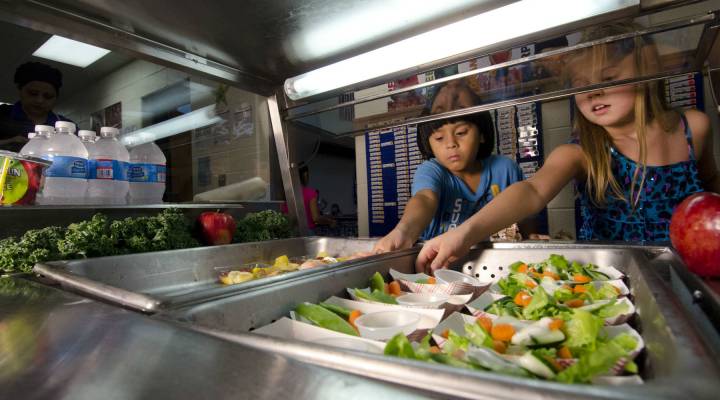
More schools offer free lunches, but who’s paying?

The Community Eligibility Provision, part of the National School Lunch Program, was signed into law by Barack Obama in 2010. It enables school districts in which 40 percent of children or more are eligible for free lunches to skip paperwork requirements and offer free meals to all students, regardless of their household income. Some educators say the provision could lower stress levels for low-income kids and help them focus on learning.
“Sometimes they worry about not having enough money to pay for their meal,” says Dora Rivas, Executive Director of the Food and Child Nutrition Program for the Dallas Independent School District. “I think this is going to be a great benefit to them.”
Rivas adds that paying for meals for all students in the district means officials will no longer have to spend time and money processing papers for families applying for the lunch benefits.
“Our funds are going to producing the meal instead of all the paperwork,” she says.
The National School Lunch Program costs the government nearly $12 billion a year, a reflection of a troubled economy in which many working parents are unable to make ends meet.
“Most of the kids in the free and reduced price meals program are kids whose parents are working, working full time at very low wages, or working part time,” says Jim Weill, president of the Food Research and Action Center. On an average school day, Weill says, some 21.5 million kids eat a free or reduced-price lunch.
There’s a lot happening in the world. Through it all, Marketplace is here for you.
You rely on Marketplace to break down the world’s events and tell you how it affects you in a fact-based, approachable way. We rely on your financial support to keep making that possible.
Your donation today powers the independent journalism that you rely on. For just $5/month, you can help sustain Marketplace so we can keep reporting on the things that matter to you.












